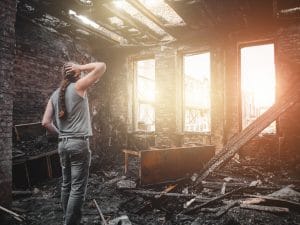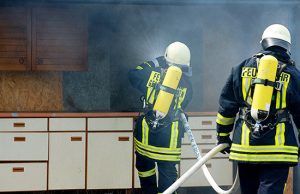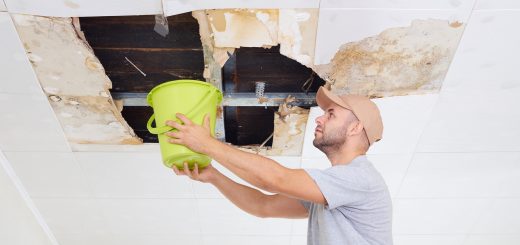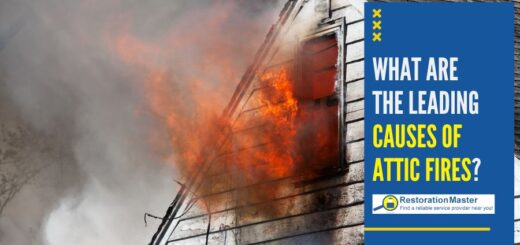What to Consider When Buying a Fire Damaged Home
Buying a fire-damaged home can be risky. There’s definitely a lot to consider, even after renovations as any problems you find after taking the seller up on a market steal can be financially detrimental.
If you know how to flip homes, this would certainly be an investment, but part of the renovation process is deciding whether or not the home is even worth fixing. So it’s best to have a professional home inspector find all issues and for you to do your research on the cost of repairs beforehand to determine if the purchase is really worth it.
Check out this list on what to consider when buying a fire damaged home.
A fire damaged home can be a great investment, but there are a lot of details to consider before signing the purchase documents. If you find out the home has any of these issues, it’s probably best to abandon the purchase.
- Water damage. Of course it takes water to extinguish the flames, but the water can damage the home as much or even more than the fire itself. Also be sure to look for:
- With the right humidityHumidity is the amount of moisture or water vapor present in... More levels or water damage, moldMold is a type of fungus that grows in damp or humid conditi... More can grow anywhere, especially in bathrooms, attics, kitchens, and basements.
- Damage air ducts. Firemen use more than just water to put out flames. A combination of chemicals is also effective in extinguishing fires, but if you find them in the air ducts, they can severely compromise the indoor air qualityIndoor air quality (IAQ) refers to the condition of the air ... More.
- Warped floors and wood frames. Wooden structures are expensive to replace and can even leadLead is a heavy metal that can be toxic to humans, especiall... More to structural issues.
- Structural issues. If the home’s load bearing walls are compromised, investment in the home is probably not worth it.
- Plumbing damage. The heat from the flames can damage PVC and copper pipes.
- If the home was built before 1980, it should be inspected for asbestos after a fire.
- Smoke damage. The particles of smoke often linger within walls and floors even after the renovation process. Areas also stained by sootSoot is fine black particles composed of carbon and other ma... More will often need to be replaced if left to sit.
Pros of Buying a Fire Damaged Home
As long as the home is safe and has been renovated after a fire, and you trust the renovation service and home inspector, you can save a lot of money. It is also common for these homes to be undervalued and they can be a great return on investment.
Even if repairs have not been made on the home, fixing it up yourself is often less expensive than buying it renovated. You will also be able to fix it up to your liking, such as using paint, building materials and furnishings of your choosing.
Here is a summary of the pros of buying a house after a fire:
- Great price and negotiation power
- Higher return on investment
- Ability to renovate the home to your liking
Cons of Buying a Fire Damaged Home
Of course, with every decision there are pros AND cons. It is best to be aware of the cons as well in order to make the right decision.
There are a lot of unknown variables when buying a new house, which is the biggest con. Some contractors are also more trustworthy than others; those who cannot be trusted may just cover up damaged wood supports and subflooring with drywall and carpeting.
Always work with a professional home inspector, structural engineer and even an electrician so you know exactly what you are dealing with before buying the home.
You may also want to ask yourself the following questions before making the purchase:
- Location and size of the fire: how big was it and where did it happen?
- Was there structural or electrical damage?
- Is there still structural damage?
- When did the fire occur?
Apart from the home inspectionInspection is the careful examination and assessment of a pr... More, it is a good idea to look out for potential problems while touring the home. Stay on the lookout for any of the following:
- Warped, melted or damaged pipes
- Damage to the air duct system
- Lingering smoke odorAn odor is a smell, often detectable by the human nose, whic... More
- Warped floors, door frames and window frames
- Musty smells from moldMold is a type of fungus that grows in damp or humid conditi... More and/or water damage
In sum, depending on the amount, whereabouts, and timeframe of damage, purchasing a fire damaged home may or may not be a good idea.
Fire Damage RestorationFire damage restoration is the process of repairing and rest... More Services
Restoring homes from even a small fire can be a big job; there is a lot to consider during the recovery process. Depending on the size, how far it spread, and the building materials and items affected, the damage can be overwhelming to handle.
- The most important step in any fire damage situation is to call for emergency fire damage restorationFire damage restoration is the process of repairing and rest... More. Local professionals are trained, experienced, licensed, and available 24/7 to respond. Using advanced products and equipment to conduct emergency pre-cleaning to prevent permanent damage, they will create a restorationRestoration is the process of returning a property to its pr... More plan to allow for the most efficient process. They will then stabilize the home using board ups and tarping services to prevent further damage and the risk of collapse.
- Many professionals also work with a number of other contractors, including electricians, plumbers, handymen and more so you don’t have worry about coordinating with everyone. Any personal items that were damaged during the fire will also be cleaned, dried, and restored, including electronics, artwork, china and other valuable belongings. They will also maintain open and clear communication to keep you updated throughout the process.
- Finally, any lingering smoke odor will be removed using advanced technology, such as hydroxyl or ozone equipment. They will then work with your insurance agency during the claims process so you can focus on other matters.
Should You Buy A Fire Damaged Home?
As you can see, there’s a lot involved in buying a fire damaged home. A lot of work needs to be done after the damage and there’s a lot to know even after it’s been restored. The key is to know exactly what to look for and determine if the cost of repairs outweighs the value of the home.
Work with the professionals and do your research.














